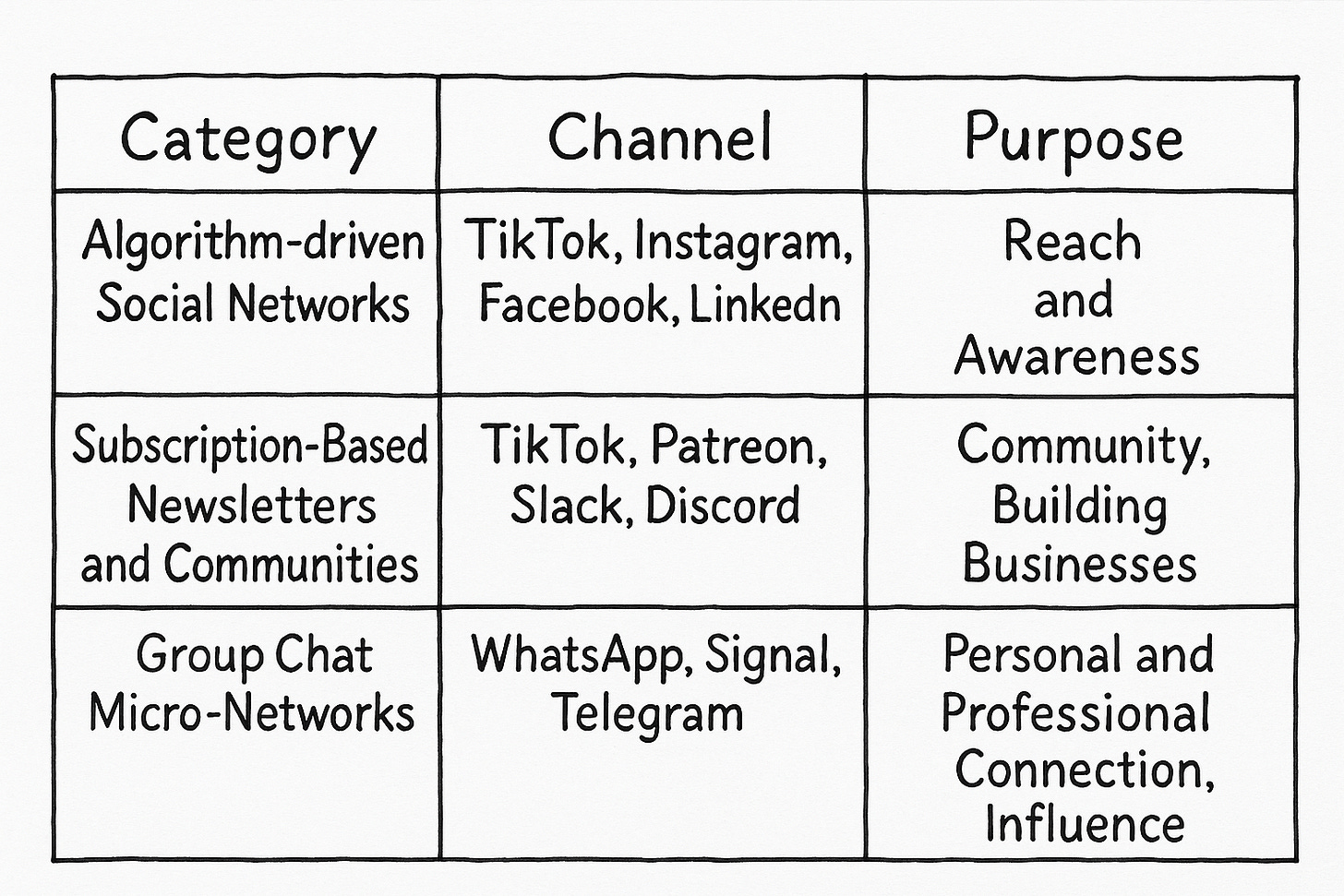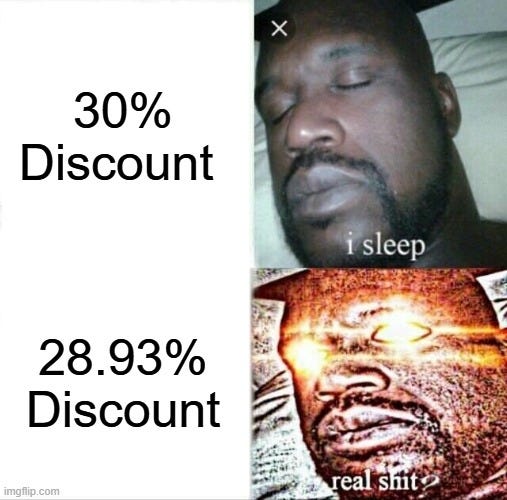MarketingDojo#112: 🍟 Willpower: 0, Touchscreen: 1 😬
Back from a reset.
After a long break in June, I'm finally back to writing.
It's amusing how a few weeks off can make writing feel unfamiliar. I'm treating this edition as a warm-up rep. Just like the gym, showing up is what matters.
The break was chaotic in a good way.
We sampled Korea, from Seoul to Busan to Jeju. We got lost in Jeju and accidentally ended up climbing the country's highest peak. Then we hit the Mumbai monsoon. Even squeezed in a full health check (inspired by Peter Attia's Medicine 3.0). That turned into a brief hospital stay (all good now!).
And just when I was ready to fly back, the unfortunate Air India Boeing crash triggered a series of cancellations that kept us grounded a little longer.
Still, I got what I needed: rest, reflection, and time with family (And a couple of books).
Now, it's back to Earth and back to what I love: marketing & writing.
In today's issue, I cover:
🍟 McMarketing: Machines upsell better than humans
🏆 Cannes 2025: Great stories, optional truth
📉 Follower counts are dead, long live reach
🧠 B2B is giving humans
And some more.
A quick request: please consider subscribing if you haven’t already. It’s simple, it’s free and always fun.
Willpower: 0, Touchscreen: 1
Hesitate bro!
Said no machine ever.
That's why McDonald's self-order kiosks are such powerful salespeople.
They don't flinch. They don't forget. They don't judge if you are cheating on your diet plan.
McDonald's Self-ordering kiosks have been shown to increase average order size by 20% and order values by 30%. The installation of these kiosks has increased per-store sales by almost 6%.
The reason behind this success is well described in a LinkedIn post by Gareth Harvey, a Psychologist and former professor.
Here's what makes the kiosk a top performer:
No hesitation or forgetfulness
Unlike human cashiers, kiosks always suggest extras and upsells. That Strawberry Sundae you didn't plan to get? It's front and center complete with glossy visuals that are hard to resist.
Personalization.
If you are a McDonald's loyalty program member, the kiosk can serve up personalised suggestions based on past orders and preferences.
No judgment zone
McDonald's is often an indulgence. When you upsize those fries, it's easier to do it in front of a machine than a human. No raised eyebrows.
Full menu visibility
With digital menus, customers explore more. More browsing = more add-ons.
If you walked in for a black coffee and left with a full meal, don't blame your willpower. Blame the machine—high on persistence, low on judgment, and incapable of hesitation.
Cannes 2025: Great Stories, Optional Truth?
When a measure becomes a target, it ceases to be a good measure. - Goodhart's law.
What about awards? Specifically, high-visibility awards that recognise creativity in the field of marketing.
This year, Cannes awarded Lions to several bold and big campaigns. But many of these came under fire not for lack of creativity but for lack of credibility.
1. FCB India's "Lucky Yatra" for Indian Railways
🏅 Award: Grand Prix (Radio & Audio)
Allegation: Industry veteran Naresh Gupta called it a "scam" campaign—barely executed, with negligible real-world impact. It was reportedly discontinued due to poor response.
Agency Response: FCB defended it as an innovative solution to a real business problem. Critics argued its reach was exaggerated in the submission.
2. Talented's "Nature Shapes Britannia" for Britannia Industries
🏅 Award: Silver Lion (Industry Craft)
⚠️ Status: Widely criticised
Allegation: Cannes juror Polina Zabrodskaya accused it of "performative greenwashing." Britannia's actual sustainability reports contradicted the claims made in the campaign.
Industry Reaction: The critique went viral, sparking debate over whether juries have the expertise to assess ESG work or are swayed by slick case videos.
3. LePub São Paulo's "Followers Store" for New Balance & São Paulo FC
🏅 Award: Bronze Lion (Direct)
⚠️ Status: Case page removed; under internal investigation
Allegation: Brazilian journalist Demétrio Vecchioli revealed that influencer endorsements and performance stats were unverifiable. New Balance said it never approved the entry.
Agency Response: LePub admitted to "inaccuracies," pulled down the case study, and launched a review. They claimed the Cannes jury was judging the idea, not the execution.
4. DM9's "Efficient Way to Pay" for Whirlpool
🏅 Award: Grand Prix (Creative Commerce)
⛔️ Status: Revoked
Allegation: The case film allegedly used AI-generated and manipulated content, including footage from CNN Brasil, in violation of Cannes rules.
Consequences: The co-president and CCO of DM9 have resigned. Cannes revoked the award and introduced new rules around AI disclosure and content verification.
A long time ago, I worked under a CMO who had a line item in the budget: "Awards." Even in lean years, that money was sacred—used for token campaigns and shiny case films designed to win, not serve.
The truth is that AI isn't the biggest threat to creativity in marketing. It's the award-baiting, the erosion of credibility, and these grand gestures that slowly wear down how the C-suite perceives our work.
I hope Cannes does better next time.
100K Followers, Zero Reach: The Post-Follower Era Is Here.
We are living in the post-follower era of social.
In 2018, I was building Porsche's digital presence in India. We tried every stunt in the book to grow our followers. And back then, it made sense: more followers meant more organic reach.
It was a direct line: grow your follower count and increase your audience.
Then TikTok came along and rewrote the rules. Today, we're in the post-follower era of social.
Whether it's TikTok, Instagram, or even LinkedIn, follower count has quietly lost its power. Content reach is entirely at the mercy of the algorithm.
This shift has massive implications for both brands and creators:
You don't own your audience; algorithms do.
What worked when you had 10K followers now works just as well (or just as unpredictably) with 10.
Reach ≠ Relationship.
Social media is still great for reach and awareness, but if you're trying to build community or loyalty, you'll need a different playbook.
Influence is changing its address.
It's no longer concentrated in public feeds. It's moving into group chats, private communities, and newsletters.
Here's a simple framework:

It's a simple framework:
If you're chasing views -> go wide.
If you're building a tribe -> go deep.
And if you still think follower count is the metric that matters, you're playing last season's game.
Red Sneakers, Weird Numbers, and the Secret Life of B2B Buyers.
Human decision-making is far from rational. Behavioural Economics is a comprehensive area of study dedicated to the various biases and quirks that influence human decision-making.
Rory Sutherland, Richard Shotton, and others have shouted from the rooftops: decision-making is never purely rational; even in a business suit.
A brilliant new report, The Yes Advantage, lays this out beautifully. It presents 9½ behavioural biases—each tested on real B2B buyers—with surprising results.
Here are my 3 favourite ones:
Red Sneakers Effect
Nonconformity (e.g., a CEO in casual attire) signals confidence and status, making brands appear more innovative and trustworthy. Breaking category norms can enhance credibility, especially among younger buyers. Steve Jobs was clearly ahead of his time! Sigh!
Precision
Specific, non-rounded numbers (e.g., “47.6% uplift” vs. “50% uplift”) are seen as more credible and trustworthy. Precision signals expertise and transparency, especially in high-stakes B2B environments.
Extremeness Aversion (Compromise Effect)
Buyers tend to avoid the cheapest and most expensive options, gravitating toward the middle choice. Introducing a third, more expensive tier can encourage buyers to opt for the desired mid-tier offering.
Only 17% of B2B marketers actually use behavioural science in their campaigns. We say our audience is human, but we rarely market to them as such. Let’s change that.
Link to the report here: https://theyesadvantage.transmissionagency.com/
Short Stuff:
WhatsApp is officially getting ads (Say hello to the inevitable).
Meta nuked several Facebook groups (No AI was blamed for this mistake).
Google is adding the capability to create YouTube Shorts using its video generation model, Veo3 (Get ready for a Tsunami of YouTube slop).
That’s a wrap on this week. Thank you for your time and attention. If you made it this far and enjoyed what you read, remember to leave a like. I appreciate your support.
I will see you in your inbox next Wednesday.
Regards,
Garima










